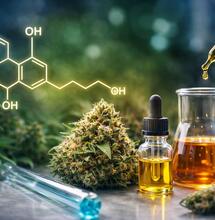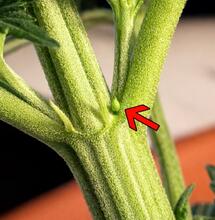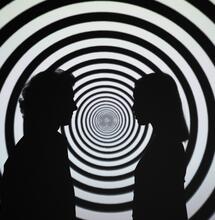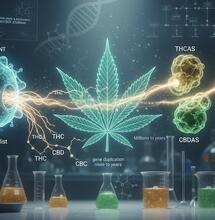Are Psychedelics Comparable to Hypnosis or Meditation?

As much as there is new research on cannabis and the various ways of how it affects the human mind and body, there is research with other psychedelic drugs in the focus. Investigators are particularly interested to find out if substances such as LSD, MDMA or mushrooms have capacity to help patients in clinical settings. A recent study has looked at the relatedness between psychedelics, meditation and hypnosis, and whether these different altered states of consciousness have anything in common, or more specifically, how they work in the brain.
For a lot of people, the responsible, occasional recreational use of psychedelic drugs can be therapeutic. For others, it’s mind-clearing and calming activities such as meditation and yoga. Whichever the case, there is something in the altered state of mind that helps recalibrate the mind in a way that promotes healing.
Many studies have looked at individual altered states of consciousness (ASC) and what happens in the brain at those instances, however, little has been inquired in terms of comparing between the different states.
In a recent research, Swiss scientists looked at the various ways people can enter an altered state of mind, including psychedelics, meditation and hypnosis.
Exploring What Happens in the Brain
The researchers, affiliated with the University of Zurich, selected psilocybin and LSD as the two pharmacological methods to induce an altered mind. Meditation and hypnosis were the two non-pharmacological methods in their investigation. To see what’s going on in the brain in each situation, the scientists used magnetic resonance imaging and they assessed data using machine learning.
“Pharmacological and non-pharmacological methods of inducing altered states of consciousness (ASC) are becoming increasingly relevant in the treatment of psychiatric disorders,” the researchers wrote in the paper. “While comparisons between them are often drawn, to date no study has directly compared their neural correlates.”
The research group did not know if the same neurobiological alterations are responsible for the experience of all altered states or whether these states differ in the brain, therefore their subject for research.
The findings of the team imply that while some might report experiencing similar sensations or feelings under these separate states of mind, what is taking place in their brain is quite complexly different.
Psilocybin and LSD appeared to create similar brain activity, but the changes they induced were substantially different from when the brain was in meditation or hypnosis. In other words, the experiment shows that psychedelic drugs, meditation and hypnosis have distinct mechanisms of how they function and the effects they generate.
“Overall, these results extend our understanding of the mechanisms of action of ASC and highlight the importance of exploring how these effects can be leveraged in the treatment of psychiatric disorders,” the authors conclude.
The research effort did not entail a single experiment that together involved psychedelics, meditation and hypnosis. Rather, the analyzed data was retrieved during four separate experimental trials.
Nathalie Rieser, one of the researchers in the project, talked more in-depth about this scientific effort on Medical Xpress.
“We combined four different datasets that were collected at the Psychiatric University Hospital in Zurich using the same MRI-scanner. For the psychedelic studies, we included healthy participants who subsequently received psilocybin, LSD, or a placebo whereas the meditation and hypnosis studies were conducted with participants who were experts in the respective field to make sure they can reach the state in an MR environment,” Rieser told the publication.
During the experimental trials, the team obtained MRI scans from the participants both from when they were in a normal state of consciousness and when they were engaged in an activity (after taking LSD or psilocybin, in meditation and hypnosis).
“We analyzed the participants’ brain activity throughout the whole brain and investigated whether different brain areas work together in a distinct way compared to the baseline scan. Our findings showed that even though psilocybin, LSD, meditation, and hypnosis induce overlapping subjective effects, the underlying brain changes are distinct,” Rieser said.
In sum, the study results suggest that all three distinct altered states of mind may have synergistic therapeutic effects, but it may not be the case that they can therapeutically substitute each other. Further investigations are needed to inquire about the unique strengths and benefits of each ASC and how those qualities can be best-used for patients in need.
Also read on Soft Secrets:
- What Can Psychologists Learn from MDMA?

















